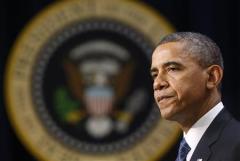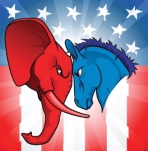The Republicans in the Senate are pushing for a tax reform to lower federal income taxes, and most of them ran their election on this promise to lower taxes. Both Democrats and Republicans have their argument for why they should stay the same, be higher, or be lower. I am for lowering of the federal income taxes. Democrats complain about how the rich do not pay enough in taxes even though they 45% in taxes, but they pay less through tax write offs and loopholes. More people in the United States would pay taxes if we lowered taxes andchanged the tax bracket since right now 45 percent of Americans don’t pay their taxes.
Lowering taxes to get more people to pay them could allow the US to receive more tax money to help public education, the poor, and many other things that we rely on the government to provide for us. The way we could lower taxes without actually getting rid of the percentages we have now would be to add more brackets into the existing tax bracket. This would allow someone to only have to pay 15% instead of 25% in taxes when they barely make more than the 15% bracket maximum. The max for the 15% bracket is 37,950 for a single person. By doing this, more of the lower income people would be  more inclined to pay taxes which means more money for the government. Also, by taking less of the people’s money, they could spend that money on other things like tutoring, private school, and other things to boost our economy, but if everybody in America paid taxes, then we wouldn’t need the crazy amount of private schools we have. We could fix multiple problems by doing something pretty simple.
more inclined to pay taxes which means more money for the government. Also, by taking less of the people’s money, they could spend that money on other things like tutoring, private school, and other things to boost our economy, but if everybody in America paid taxes, then we wouldn’t need the crazy amount of private schools we have. We could fix multiple problems by doing something pretty simple.
The lower and middle class would really benefit from lower taxes since less of their income would go to taxes and more towards basic necessities. The lower income class would be able to improve their living conditions and health if they could keep more of their money. Also, the tax forms are so complicated and confusing that most people have to pay someone to do their taxes which means less money for those people. People from these two classes also refuse to pay taxes which is around 45% of Americans because they are displeased and that the government needs to provide more for them. That is ironic since the government needs money to provide for us. The people chose have control of their own money since they earned not the government, and they should not tell me how I should spend my money.
Changes to the tax bracket need to be made. Right now there are 7 brackets with 10% being the lowest and 39.60% being the highest. The other ones are 15, 25, 28, 33, and 35 percent.They need to add more brackets between 15 and 25 to make the gap between the two not as big and one between 10 and 15 at many around 12%. Adding more brackets could be mean the difference between living pay check to pay check for some families and more money for other things that they might need. Making the tax system more simplified could get more people to pay taxes since 59% of Americans think Congress needs to fix the tax system. Theses changes could help get America to the next level in countries that pay the majority of their taxes. This could also take away people relying the wealthy to make for everyone else lack of participation and that the wealthy don’t pay enough in taxes.
The lowering of taxes and adding more brackets to the tax could help America and Americans in general. There are many benefits to doing this, but it is only going to help America if everybody pays their taxes. More tax brackets are needed in order more Americans to pay taxes and allow the government to have more money to spend on education and everywhere they feel its necessary. Lower taxes and more brackets could help this country move to closer to a more well rounded country that takes care of the basic things that we rely on a government to provide for us.
http://www.ri.gop/lowering_taxes















